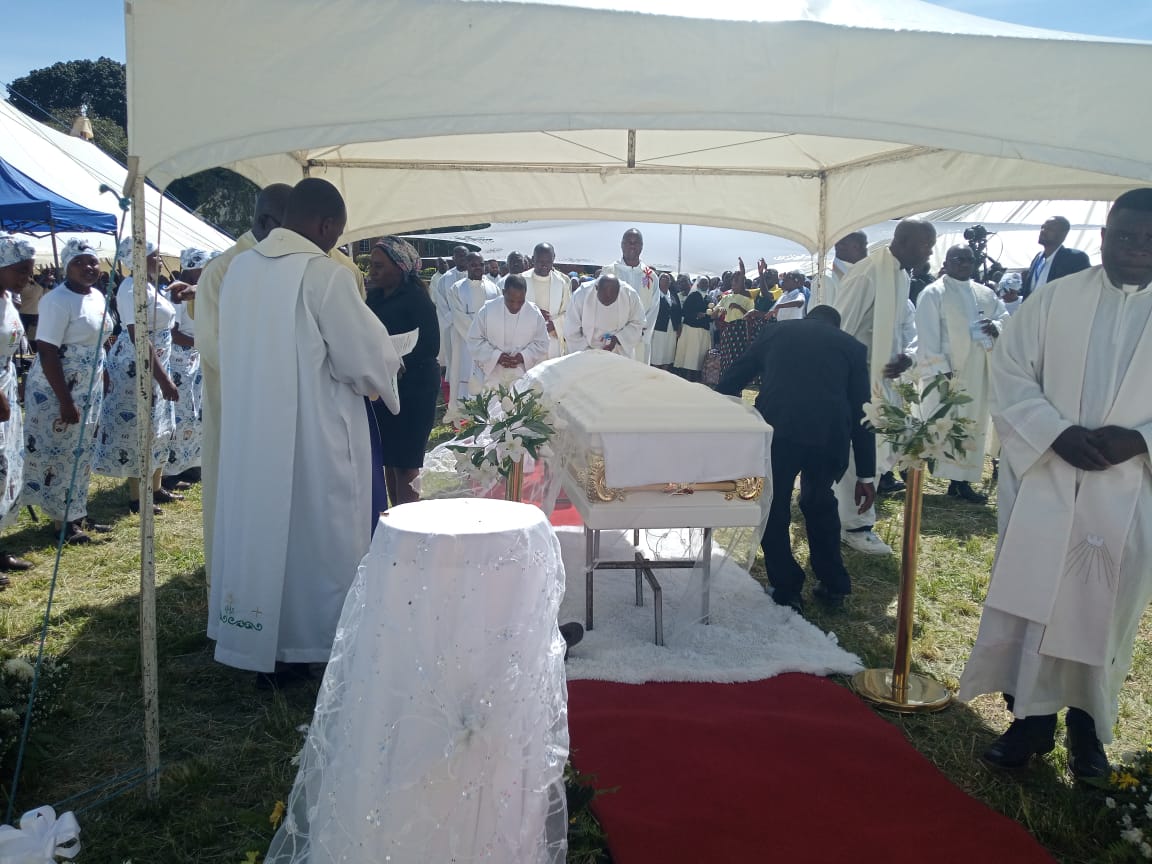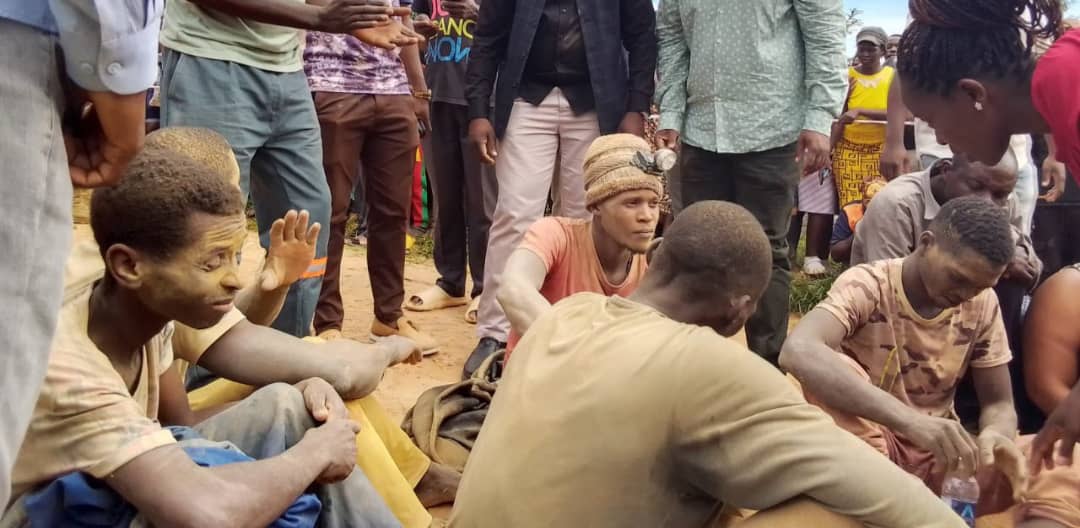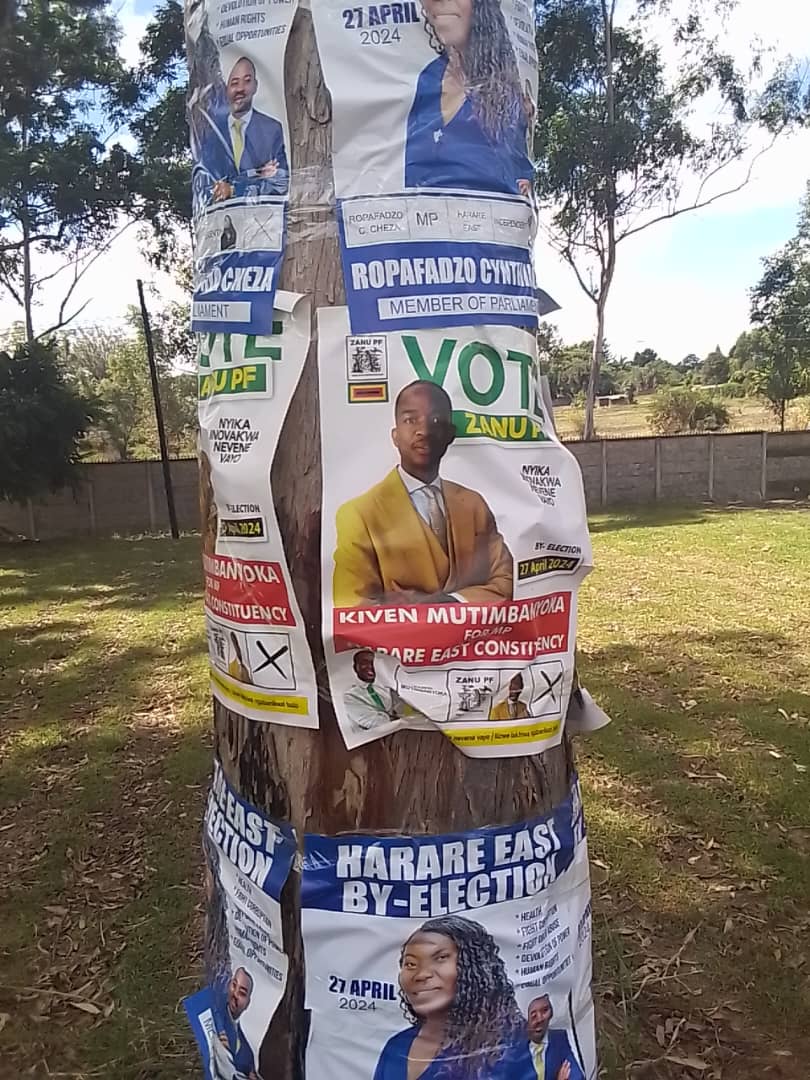Bishop Muchabaiwa buried
Share

Acting President General (Retired) Constatino Chiwenga on Thursday joined the Muchabaiwa family and the Catholic family in the country in mourning the passing on of Mutare Diocese second Bishop Emeritas Alexio Churu Muchabaiwa.
Bishop Muchabaiwa passed away on Monday at Murambi Gardens Clinic in Mutare at the age of 84 and was buried last Thursday.
Speaking during the interment mass held at St Dominic's High school in the eastern border city, Acting President Chiwenga said the late Bishop Muchabaiwa contributed immensely to the liberation and history of Zimbabwe.
The liberation struggle was not an easy period for the church as this saw to the persecution and deportation of several priests in the Catholic church. The Church had to stand strong in such troubled times and it is at this particular period that Sekuru Muchabaiwa served as a priest at St Mary’s in Highfields, the place I first got to know him as I served mass there, he said.
Acting President Chiwenga said his interaction with the late Bishop Muchabaiwa at St Mary’s was the basis of his strong faith till to date.
He reminded the Church and the nation at large of one of the most significant roles played by the late Bishop Muchabaiwa in the history of Zimbabwe, namely the consecration of the National Heroes Acre.
In 1982 the late President of Zimbabwe requested Archbishop Chakaipa to preside over the blessing of the National Heroes Acre and the reburial of the first two national heroes to be interred at the shrine. He was however called at short notice to Rome by the late Pope John Paul, now St John Paul II. Due to that unforeseen event, Sekuru Chakaipa delegated his Vicar General then, Father Alexio Muchabaiwa to officiate at this historical national event.
The National Heroes Acre was blessed and is still blessed by this man lying in state before us today.
As a nation we shall always keep the mantra nyika inonamatirwa nevene vayo a legacy left by the late and others he said.
Bishop Muchabaiwa is fondly remembered as the man who consecrated the National Heroes Acre and officiated at the burial of Zimbabwe’s first national heroes, Josiah Tongogara and Jason Ziyapapa Moyo.
In the same year, then Father Muchabaiwa was appointed and ordained Bishop of the Catholic Diocese of Mutare succeeding the late Bishop Donal Lamont.
Born in June 1939 in Hwedza, Mashonaland East, the late Bishop Muchabaiwa was ordained a Priest in August 1968 after which he worked at Makumbe Mission in Goromonzi where he replaced then Father Patrick Chakaipa from 1969 to 1972.
In 1973, he went to Gaba Institute in Uganda to do a diploma in Pastoral Theology and on his return in 1974, he was posted to St. Mary's in Highfields with Father Isdore Chikore.
He later moved to Chishawasha Major Seminary, about 25 kilometres east of the capital to become Spiritual Director of the students during Father Tobias Chiginya’s tenure as Rector.
Fr Muchabaiwa took over as Rector of Chishawasha Seminary when Fr Chiginya was appointed to lead the diocese of Gweru as its bishop.
Between 1979 and 1980, Fr Muchabaiwa became the Vicar General of the Archdiocese of Harare and was the Chaplain to the first African Mayor of Harare, Tizirai Gwata.
The Catholic Bishop, who retired in May 2016 at the age of 75, had leadership responsibilities at the Zimbabwe Catholic Bishops Conference (ZCBC), where he served as President for two terms.
Other leadership roles he held at ZCBC included Chairman for the Catholic Commission for Justice and Peace, Education Commission, Marriage and family, Seminary Board and the ZCBC Finance Committee.
The late Bishop Muchabaiwa’s journey to priesthood was never an easy one as he faced doubt and resistance since birth.
He was named Churu in reference to an anthill that served as a family burial ground as his parents believed he would not live long after they had suffered the death of their firstborn child in infancy.
The route to becoming a priest was not easy for Fr Muchabaiwa, like that of other priests of his generation, as he was raised by parents who believed that priesthood was only for white missionaries.
At one point in his life, his father actually stopped him from going back to Kutama where he was studying, and he was forced to remain home herding cattle in a bid to block him from missionary influence.
Fr Muchabaiwa was only later granted permission to go to Harare to look for employment and was later allowed to join the seminary in 1957 following protracted engagements with his father and the intervention of his grandfather.







